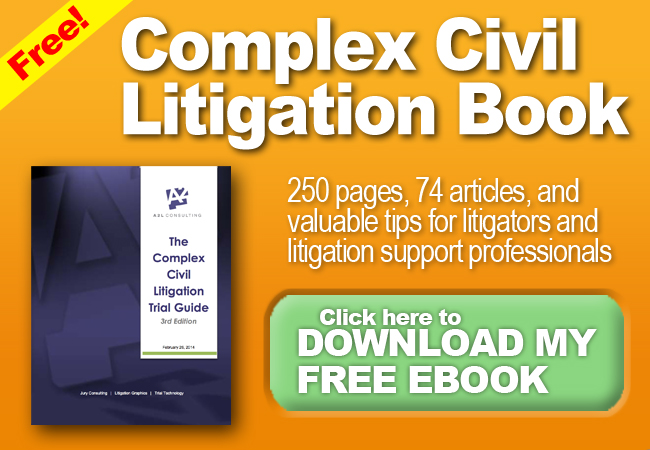As much as we love going to trial, it is not always best for those involved. When it comes to going through a lawsuit, it can feel like an overwhelming and stressful experience. The thought of going to trial can be daunting, both emotionally and financially. However, there are ways to encourage settlement of lawsuits during the pre-trial phase, which can help alleviate some of the burdens associated with the litigation process. In this blog post, we will explore 10 effective strategies to encourage settlement before trial.
1. Engage in early mediation: Mediation is a process where a neutral third party assists the parties in reaching a mutually beneficial agreement. This approach can help avoid costly and time-consuming discovery and motion practice. By engaging in mediation early on in the litigation process, the parties can explore different options for resolving their dispute. It also helps in preserving relationships between the parties, which can be crucial if they need to work together in the future.
2. Consider settlement conferences: A settlement conference involves a meeting between the parties, their attorneys, and a judge or magistrate. The purpose of this conference is to discuss the case and explore settlement options. The judge or magistrate can provide guidance and feedback on the strengths and weaknesses of each party's case, facilitating a potential settlement. Settlement conferences are particularly effective when held close to the trial date, as parties may be more motivated to settle.
3. Keep an open mind: Many parties enter into litigation with the mindset that they will only settle if they get everything they want. However, this approach is not realistic when it comes to settlement. It requires compromise, and parties must be willing to give up something to get something in return. It’s essential to approach settlement with an open mind and be willing to explore creative solutions.
4. Take a collaborative approach: Collaboration involves working with the other side to identify and resolve issues, rather than adopting an adversarial approach. Collaborative efforts can include joint document productions, agreeing on the scope of discovery, and engaging in informal settlement discussions. By working collaboratively, parties can reduce the overall cost and time associated with litigation, increasing the likelihood of a successful settlement.
5. Understand the risks of going to trial: Trials are unpredictable, and there is always a risk that a party will lose. This risk can be particularly concerning when the stakes are high, such as in cases involving significant sums of money or reputational damage. By understanding the risks associated with going to trial, parties may be more willing to explore settlement options.
6. Consider the costs: Litigation can be expensive, and the cost of going to trial can be prohibitive for many parties. Settlement can be a cost-effective way to resolve a dispute and avoid the expenses of trial, such as attorney fees, court costs, and expert witness fees.
7. Consider the benefits of settlement: Settlement offers parties a range of benefits, including avoiding the risks and costs of trial, preserving relationships, and achieving a resolution tailored to their needs. It provides an opportunity for parties to have control over the outcome rather than leaving it in the hands of a judge or jury.
8. Consult with an attorney: An experienced attorney can provide valuable guidance on the strengths and weaknesses of a case, helping parties explore settlement options effectively. They can also provide advice on the potential costs and benefits of settlement versus going to trial, ensuring parties make informed decisions.
9. Be prepared to compromise: Settlement requires compromise, and parties must be willing to give up something to reach a resolution. It’s crucial to approach settlement with a realistic understanding of what each party is willing to compromise on. Being open to finding common ground can significantly increase the chances of reaching a settlement.
10. Be patient: Settlement can take time, and it’s important to remain patient throughout the process. Parties may need to engage in multiple rounds of negotiation to reach a mutually beneficial agreement. Rushing the process can lead to inadequate settlements or no settlement at all.
In conclusion, encouraging settlement before trial is essential to alleviate the burdens associated with litigation. Engaging in early mediation, settlement conferences, keeping an open mind, taking a collaborative approach, understanding the risks of going to trial, considering the costs and benefits of settlement, consulting with an attorney, being prepared to compromise, and being patient are all crucial strategies. By implementing these strategies, parties can reduce the burden associated with litigation and increase the likelihood of a successful settlement.
Other articles related to settlement, jury consulting, mock exercises and trial preparation from A2L Consulting:
- 5 Settlement Scenarios Where Litigation Graphics Create Leverage
- 6 Triggers That Prompt a Call to Your Litigation Consultant
- 6 Secrets of the Jury Consulting Business You Should Know
- 10 Things Every Mock Jury Ever Has Said
- 12 Astute Tips for Meaningful Mock Trials
- 11 Problems with Mock Trials and How to Avoid Them
- 7 Questions You Must Ask Your Mock Jury About Litigation Graphics
- 6 Good Reasons to Conduct a Mock Trial
- 7 Reasons In-House Counsel Should Want a Mock Trial
- 11 Surprising Areas Where We Are Using Mock Exercises and Testing






Leave a Comment